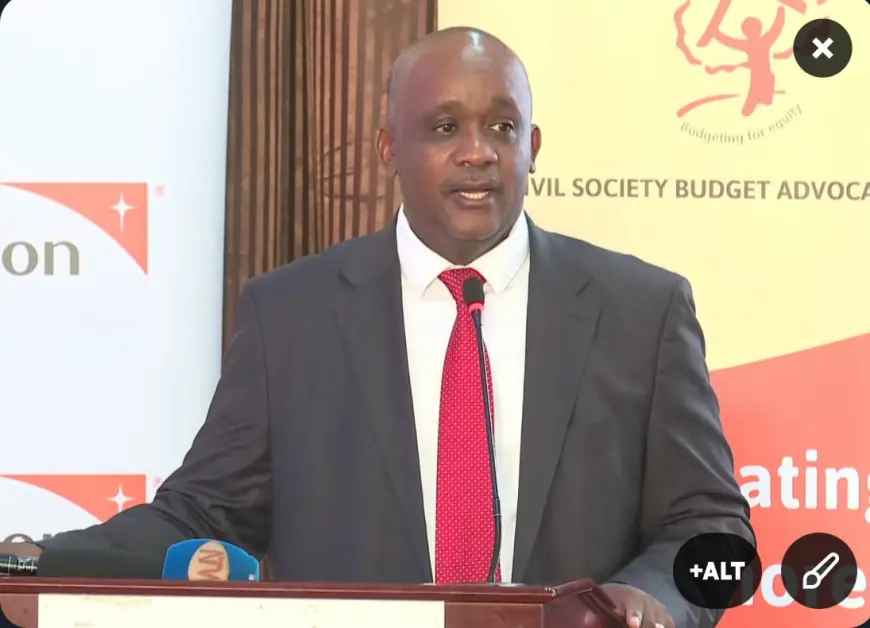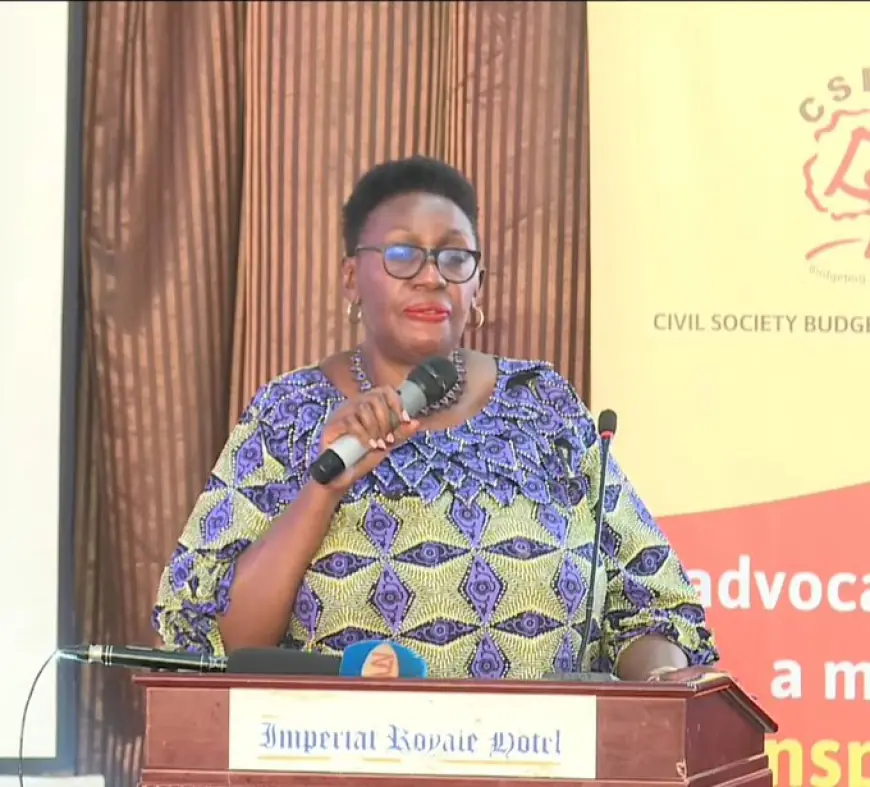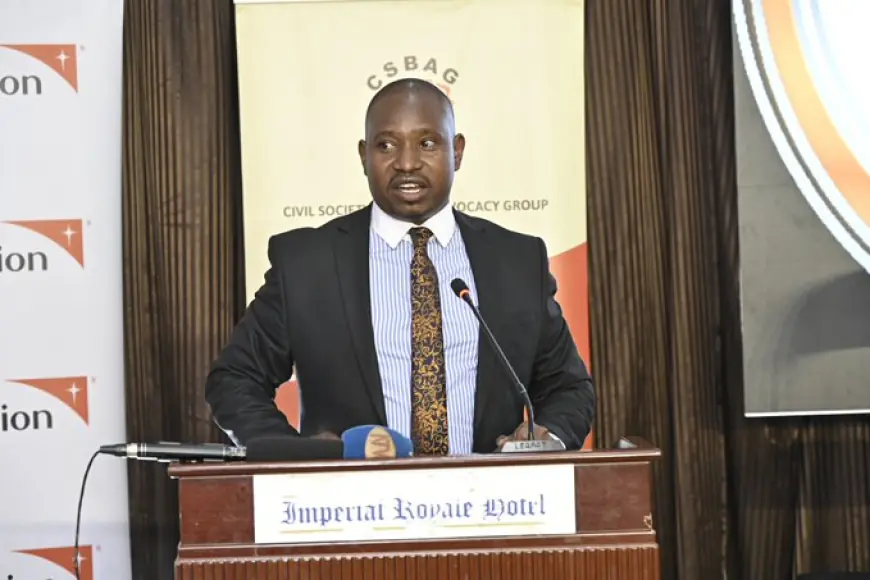41st Pre-budget dialogue: CSOs put forward their position on financing the 2025/26 budget.
The theme of the 41st CSOs Pre-Budget Dialogue is: Making the budget work for the people: Prioritizing expenditure for inclusive growth.

The Civil Society Organizations (CSOs) under The Civil Society Budget Advocacy Group (CSBAG) convened a pre-budget dialogue on 13th February 2025 to discuss how the FY 2025/26 budget will be financed and the priority areas area that will ensure the budget reports to the desire of each sub-sector of Uganda’s economy.
The CSO leaders outlined key policy directives aimed at repurposing current budget resources, improving allocative efficiency, and effective implementation of next financial year's budget execution calling for collaboration of different sectors to strengthen the implementation of the budget, through a renewed public investment management.
The Executive Director of CSBAG Mr. Julius Mukunda whild giving his remarks at Imperial Royal Hotel in Kampala, said that though the economy has registered growth in numbers, key sectors and poverty levels have not changed among citizens much, calling for an inclusive resource allocation and minimizing leakages in the budget.
"Uganda’s economy is said to be growing, but if key sectors are declining, what kind of growth is that? Let’s focus on real, inclusive development, not just numbers! Planners are doing their best with little funding, but the demands are overwhelming. We need better resource allocation to match our national priorities. There is a need to check on the leakages in the budget for effective repurposing" he said
Mr Mukunda said that the CSO's pre-budget dialogue aims at bringing together different stakeholders to assess the government's policy proposals for FY 2025/26 and their alignment with national development priorities, to Identify key interventions to repurpose the budget for critical sectors among others.
"The rationale of the dialogue is to provide a platform for civil society, policymakers, private sector actors, and other stakeholders to discuss the financing for FY 2025/26" he said
Mr. Mukunda while commending the government said that "Our recommendations to the government for FY 2025/26 are; Having a more realistic budget from UGX 72.1 trillion to UGX 57.4 trillion, reduced reliance on external financing, reduced domestic borrowing, and holding back the creation of new administrative units

Ms. Agnes Kirabo, The Executive Director, Food Rights Alliance
In her opening, Ms. Agnes Kirabo, The Executive Director of Food Rights Alliance (FRA) noted that should address equality, power balances, and accountability, while serving the interests of all sectors including citizens, politicians, and economists among others.
“We are very expectant to the budget to see growing utilization, security, nutrition, human development, quality education, trade, tourism. Political scholars see the budget through the lens of power and power dynamics, administrative scholars view the budget as a tool of accountability” she noted.
Mr. David Okwir, Senior Economist from the Ministry of Finance, Planning and Economic Development re-echoed that Uganda's Budget Strategy for FY 2025/2026 will be financed through domestic and external resources. He said that to reduce reliance on external financing, the government will strengthen its Domestic Revenue Mobilization Strategy.
“Key interventions include repurposing current budget resources, improving allocative efficiency, and effective implementation of the Domestic Revenue Mobilization Strategy (DRMS) to combat tax evasion and smuggling. By implementing these strategies, Uganda aims to achieve economic growth, reduce reliance on external financing, and improve the overall standard of living for its citizens. By implementing these strategies, Uganda aims to achieve economic growth, reduce reliance on external financing, and improve the overall standard of living for its citizens. he said.

Mr. David Okwir, Senior Economist from the Ministry of Finance, Planning and Economic Development
He mentioned that the government also plans to incentivize diversification of private capital, explore Oil & Gas reserves to increase revenue, and form a conglomerate of equity companies around mineral reserves/assets to attract private capita.
In the 2024 Report, indicates that CSBAG’s strides included a strengthened participatory audit system, especially among citizens, and local government among others, continued advocacy for improved financing of climate change, and prudent public debt management, stronger collaboration for resilience in disaster risks, and capabilities among CSOs and local governments technocrats, among other milestones.












